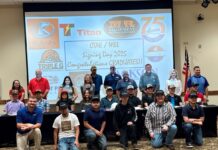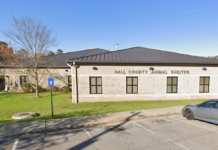
I am reading “Benjamin Franklin, an American Life,” by Walter Isaacson. Franklin was a remarkable man, the most famous inventor and thinker of his time and was known worldwide before the Revolutionary War. He was already old by that age’s standards when the war began but he played a major role in the political and war efforts from the beginning. He was a little slow to become a wholehearted patriot, perhaps because he had come to love England and things English. He spent some years there and as war neared he at first wanted somehow to keep ties with England.
Yet when Franklin did see the only way out was to fight he became a major figure in helping win freedom, in spite of the alienation of his son, William Franklin. Before the war began William was governor of New Jersey and remained loyal to England, where he fled to at the outbreak of war.
The rise of a patriot
Benjamin Franklin used his brilliant mind in helping prepare for war and to persuade the various patriot leaders and colonies to unite against England. He had great influence in France and gained necessary military and monetary aid from there, which tipped the scales in favor of the colonies. Franklin was a major figure through all the difficulties before and during the war with England, and later in the forming of the new nation’s governing system and documents.
“I have lived, Sir, a long time, and the longer I live, the more convincing proofs I see of this truth-that God governs in the affairs of men. And if a sparrow cannot fall to the Ground without his Notice, is it probable that an Empire can rise without his Aid?” ~ Benjamin Franklin, To Colleagues at the Constitutional Convention.
 Benjamin Franklin was also a successful inventor, inventing several things beyond the discovery of electricity by flying a kite during a thunderstorm. From that initial step he invented the battery and a machine that collected static electricity. Other inventions were the lightning rod and the Franklin stove. He did not profit from his inventions but shared them freely with the world. To show his scientific mind on his voyages to England and France he mapped the Gulf Stream.
Benjamin Franklin was also a successful inventor, inventing several things beyond the discovery of electricity by flying a kite during a thunderstorm. From that initial step he invented the battery and a machine that collected static electricity. Other inventions were the lightning rod and the Franklin stove. He did not profit from his inventions but shared them freely with the world. To show his scientific mind on his voyages to England and France he mapped the Gulf Stream.
Franklin led in the development of the constitutional republic called the United States of America, the greatest system for freedom of the individual citizen the world has ever seen. The key necessity, however, requires citizens and their children to be informed on the principles that made the constitutional republic shine as the bright star of freedom in the world.
These principles embedded in the Constitution were eternal and not from a human source but from God. The prime principle is that freedom comes not from man but from God. To maintain freedom new generations must be taught the principles and citizens must realize they can retain freedom only by active participation in elections and keeping the right principles alive. Franklin’s words follow.
“All of us who were engaged in the struggle must have observed frequent instances of superintending providence in our favor. To that kind providence we owe this happy opportunity of consulting in peace on the means of establishing our future national felicity. And have we now forgotten that powerful friend? Or do we imagine that we no longer need his assistance? I have lived, Sir, a long time, and the longer I live, the more convincing proofs I see of this truth-that God governs in the affairs of men. And if a sparrow cannot fall to the Ground without his Notice, is it probable that an Empire can rise without his Aid?” ~ Benjamin Franklin, To Colleagues at the Constitutional Convention.
In closing, his thoughts on the type of citizens we should be follows: “I am for doing good to the poor, but I differ in opinion of the means. I think the best way of doing good to the poor, is not making them easy in poverty, but leading or driving them out of it.”







